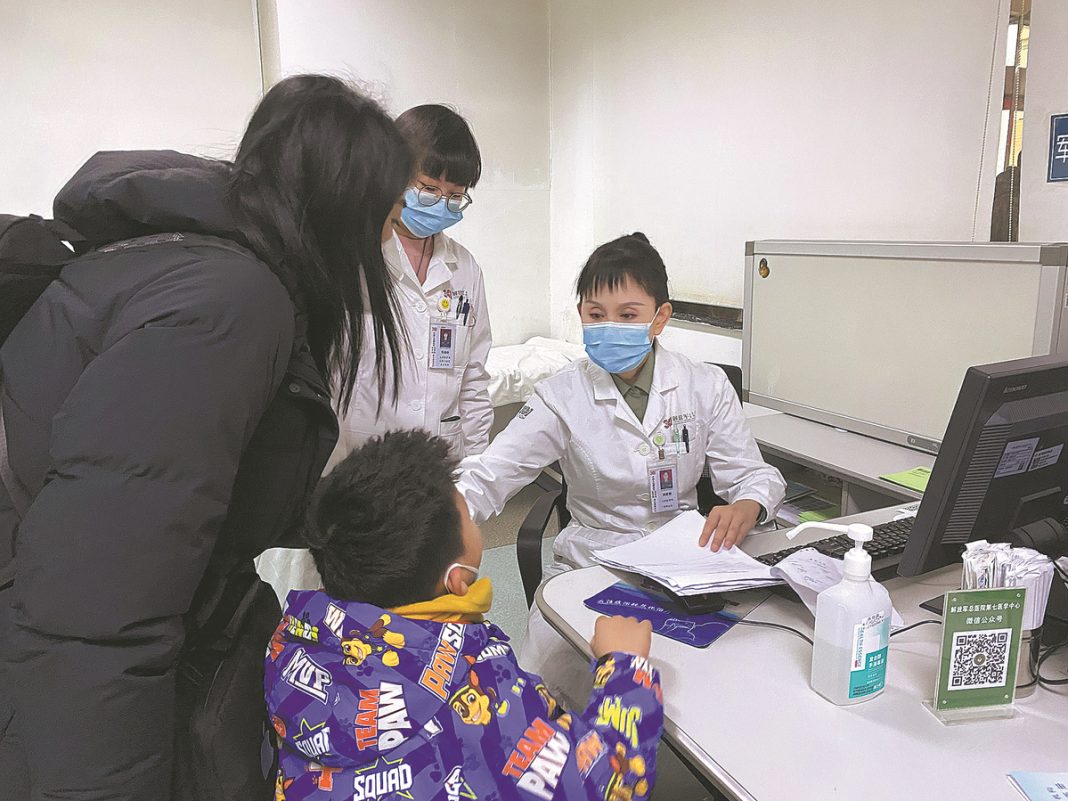BEIJING: The number of patients visiting health institutions in China with respiratory illnesses has been steadily declining, a trend that health officials expect to continue in the coming weeks.
At a press conference on Sunday, Mi Feng, a spokesman for the National Health Commission, reported an 8.2-percent decrease in outpatient and emergency treatment volume for respiratory diseases at secondary or above hospitals compared to December 15th. This represented a 30 percent drop from the peak period earlier in the season.
“The number of diagnoses and treatments in basic health institutions has also remained relatively stable, with recent monitoring showing a decline,” said Fu Wei, an official from the commission’s department for basic health. Fu added that basic health institutions have seen around 40 percent of the patients with respiratory illnesses across the country since Nov 26.
Peng Zhibin, an official from the Chinese Center for Disease Control and Prevention, attributed the recent surge in respiratory illnesses primarily to the influenza virus, although cases caused by mycoplasma pneumoniae, respiratory syncytial virus, and adenovirus were also identified. He noted that while the activity of these viruses fluctuates and declines, novel coronavirus activity has reached extremely low levels in 2023.
“The downward trend of acute respiratory illness is likely to continue in the coming week, with influenza remaining the dominant virus,” Peng said.
Meanwhile, China has achieved marked progress in carrying forward Traditional Chinese Medicine to the world in recent years, while experts called for more open-minded and inclusive international cooperation in the sector to let more people in the world enjoy benefits of the Chinese medicine.
“Traditional Chinese Medicine is a great product of Chinese people, whose future is brighter after the TCM’s development being lifted as a State-level strategy in recent years,” said Yu Wenming, president of the China Association of Chinese Medicine at a seminar in Beijing on Wednesday.
According to him, Traditional Chinese Medicine has so far been received in 196 countries and regions with around 30 high-quality TCM research or cooperation centers being established overseas. “A report by the World Health Organization shows that 113 of its member countries and regions have performed acupuncture treatment and 30 have legal supervision over their acupuncture service providers in 2019, and another 20 member countries and regions have included acupuncture in their medicare system.
“The 72nd World Health Assembly held in May 2019, approved to inclusion of a separate chapter about traditional Chinese medicines in the 11th Revision of the International Classification of Diseases for the first time. The TCM has then officially been included in the world’s medical system,” he added. –The Daily Mail-China Daily news exchange item






